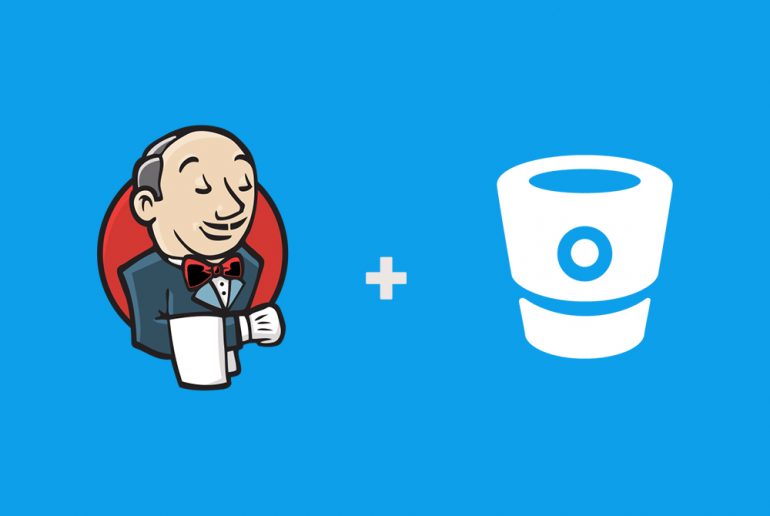For instructions on linking with Jenkins, see the documentation for the Bitbucket Server integration plugin for Jenkins on plugins.jenkins.io. Configure your Bitbucket repository with a Webhook, using URL JENKINS_URL/bitbucket-hook/ (no need for credentials but do remember the trailing slash). The plugin streamlines the entire configuration process and removes the need for multiple plugins to achieve the same workflow.
This plugin uses Apache Maven for development and releases. It also uses Groovy as part of the presentation layer for the plugin. After a moment, your Jenkins instance will appear in the list of linked applications.
Bitbucket Setup
It acts as a central hub that is used to manage all Git Repositories, Collaborate on Source Code, and Guide everyone through the Software Development Cycle. It is a part of the Atlassian family, with tools like Confluence, Jira, and others to help technical teams reach their full potential. BitBucket can be deployed in three different ways which are BitBucket Cloud, BitBucket Data Center, and BitBucket Server. There is a very good working one, tested with real instances/workloads. I believe I have all the bits and pieces for the server connectivity configured fine as a connection test works fine. You can post your feedback here or send email to ikhan at atlassian dot com.
Just change your repo URL to be all lower case instead of CamelCase and the pattern match should find your project. Anyway, you can check access.log and see if Bitbucket makes a try or not. Once you logged in, then click the Create repository button like in the image. Create New Job in Jenkins and connect BitBucket Repo using the BitBucket credentials. The “loose matching” is based on the host name and paths of the projects matching.
Select a Bitbucket Server instance when creating a Freestyle Job
It’s usually used to connect Cloud to Cloud applications/services. Unfortunately, I’m not aware of any existing Jenkins plugin that uses the Connect framework. Its completely Automated Pipeline offers data to be delivered in real-time without any loss from source to destination. Its fault-tolerant and scalable architecture ensures that the data is handled in a secure, consistent manner with zero data loss and supports different forms of data. The solutions provided are consistent and work with different Business Intelligence (BI) tools as well. It’s like if Microsoft would decide not to use Google Chromium for their new Edge but creating the other the same thing from zero.
In addition to the 100+ data sources, Hevo also allows integrating data from non-native sources using Hevo’s in-built Webhooks Connector. It is a No-code Data Pipeline that can help you combine data from multiple sources. You can use it to transfer data from multiple data sources into your Data Warehouse, Database, or a destination of your choice.
No-code Data Pipeline for Your Data Warehouse
And trigger the build when a code is modified/ committed/ changed in the Bitbucket repository. DevOps plays a very important role in application development. This will make it easier for them to select the repo to be cloned. @Aliaksei SavanchukThis plugin can do quite a bit more than the branch source plugin. We have used several in the marketplace to meet our developers workflows, so far this one seems to work for most teams. Now with the Jenkins setup for Bitbucket, we are ready to test the complete configuration.
- Really excited about this and happy that Atlassian dove in head first rather than the normal model of leave it up to the marketplace.
- You can use it to transfer data from multiple data sources into your Data Warehouse, Database, or a destination of your choice.
- It is a part of the Atlassian family, with tools like Confluence, Jira, and others to help technical teams reach their full potential.
- Watch this video to find out how, or read the BitBucket Server solution page to learn more about it.
- Tie builds, deployments and automations to your Bitbucket Cloud workflows.
- Hevo Data provides its users with a simpler platform for integrating data from 100+ sources for Analysis.
I cannot figure out how to set the trigger value for the job in the in jenkins file. Ie I can create a multi project pipeline and get it to fire just fine manually, in addition I can fire a freestyle job with bitbucket jenkins integration no issue from a push as well. The problem is once a multi project pipeline is created there is no way to change and save the configuration, So I need to be able to set the trigger value in the jenkins file. When adding a Bitbucket Server instance you must add at least one Bitbucket Server HTTP access token that is configured with project admin permissions.
Configure the plugin
You can then check the build info in Jenkins to see the changeset. Looks like a very good possibility to work with the CI/CD capablities of Jenkins (pipeline as code). Less overhead in the current setup, a plugin in Bitbucket and Jenkins. Really excited about this and happy that Atlassian bitbucket jenkins integration dove in head first rather than the normal model of leave it up to the marketplace. Whenever a pipeline you run is completed, Actioner notifies you with a direct message. More than that, you and your team can track the pipeline progress through notifications sent to your preferred channel.
And besides not all teams or environments have or care to divert the resources to “just contribute to this” I for one need a solid working solution for this. And while I explored the tool you mention it was not working in my environment, the problem I was having got a lot of “shrugs” and I dont have time to dig into it. This is basic functionality that should be part of the out of the box solution in the first place. You need to select “Bitbucket Server trigger build after push” to get the webhook created.
Connect Webhooks to Firebolt: 2 Ways to Integrate Data
We want to automate project build using a Parametrised Jenkins Pipeline of the source code stored in Bitbucket Server. The goal of this tutorial is, how to connect Jenkins and BitBucket. Whenever a code is changed in BitBucket Repo, Jenkins automatically will create a new build process. Not focusing on the build process in Jenkins and deploying to a remote server using Jenkins. And trigger a job automatically in Jenkins when a new code is committed in Bitbucket.
Integrated CI/CD enables you to create a link between Bitbucket Data Center and Server and Jenkins, unlocking a range of benefits. Bitbucket can receive build statuses, test results, and other feedback from Jenkins, and display it in context where it matters most. In Jenkins, you can pick a Bitbucket repository and checkout its sources without specifying additional credentials. Since 1.1.5 Bitbucket automatically injects the payload received by Bitbucket into the build. You can catch the payload to process it accordingly through the environmental variable $BITBUCKET_PAYLOAD.
Valid for pipeline with job-dsl 1.77+ (and before)
Below example is for Pull-request updated (that shall be approved) on BitBucket Cloud, for a FreeStyle job. All the above examples can be adapted with the same paradigm. Watch this video to find out how, or read the BitBucket Server solution page to learn more about it. Once they’re linked, users can then complete the authorization process to perform Jenkins actions in Bitbucket. The “loose matching” is based on the host name and paths of the projects matching.











